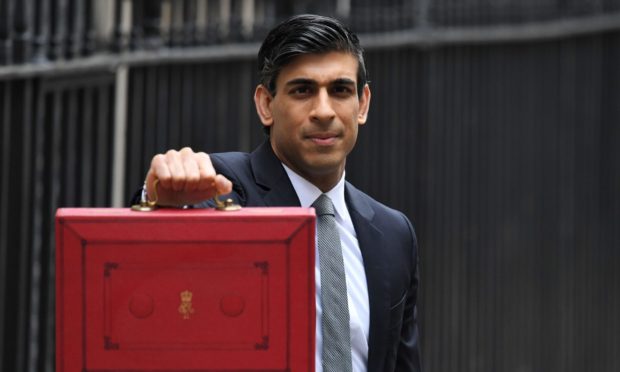Put me in a Dons strip, working boots and call me a teuchter, I admit it: I like to pay for things in cash.
I’m not one for borrowing to be honest. I don’t know why but I struggle with the concept. In my defence I am just not that flash with the cash but will spend generously where I have the money. I just like to earn before I spend, even if that means I can’t keep up with the Audi craze in Aberdeen.
Generally my default is “borrowing is bad”. However, I know that is not always the case and so I must turn to our hedge fund friend Rishi Sunak for inspiration about good borrowing. I can be pretty sure there won’t have been many people in the UK who have ever borrowed as much on behalf of their employer as Rishi.
I wrote last year about how I thought the government response to Covid was the right one even though it was without precedent. The concept of furlough is about getting money into the hands of individuals who can then spend it to keep the economy moving. So the borrowing seems sensible but should we be concerned?
The concept of borrowing is that you pay it back. Back in the day as a house buyer you could borrow 2.5 times your household income. This level of borrowing was seen to be sustainable and would allow you to repay your capital debt and interest even in the event of bank rates fluctuating. Over recent decades borrowing multiples have increased as volatility of interest rates have decreased.
One further thing which few of us think about when we borrow is the different ways inflation has an impact. We do think about capital appreciation (inflation) of house prices. The benefit of that type of inflation is if the price goes up the capital borrowing stays the same and we gain equity. However, there is another way that inflation can impact debt and that is if capital debt remains constant but incomes (wages) increase with inflation. If this happens then it may be easier to pay off debt, if interest rates stay low, as you have more disposable cash sloshing around.
So back to Rishi, he has borrowed a shedload of money. From memory the UK has debt of over £2 trillion, it will be higher by the end of the year. Look at some websites to get your head around that. One site suggested that £1 million is a chair-high stack of $100 bills, whereas £1tn is 631 miles high. That means that £2tn is a stack of $100 notes five times higher than the International Space Station (I think). The UK owes a lot of money.
Our chancellor has started making noises, threats, about how we are going to repay it all. Frankly starting that discussion now is akin to asking how we are going to boil the ocean with a match. As part of his day job he should be recovering as much tax as he can, but no matter what he does over the next five years he won’t put a dent in the borrowing. The chancellor needs to be honest about where we are and forget political ideals. I would guess UK debt per household will be about £80,000 by the time we get to the end of this year. The UK’s median household disposable income is about £30,000, this is therefore around the 2.5 income to borrowing multiple we had for mortgages in the 1980s.
So, where am I with all of this? Well the borrowing has been necessary. The debt, although mindboggling, looks manageable albeit that no one would choose to borrow if they didn’t have to. The last 13 years have had interest rates at next to zero, this isn’t guaranteed in the future but the probability is high. The debt therefore still looks affordable (as long as interest rates remain low). With all that in mind there is no need to “threaten” us about a debt mountain.
Thinking of the UK as a household the “multiple” isn’t yet so high we need worry either, that could change if the economy doesn’t get going. The borrowing is only worrying if interest rates rise or income (tax take) starts to fall. The government should simply do its job and encourage growth and recover taxes in a measured way.
There is probably a school of thought that the government can “inflate” debt away. That is a risky thought process as it undermines the independence of the Bank of England through political interference. There are also other impacts on society too.
So what next? Well maybe government can be more realistic and open with their views on debt. Above all I would like to be treated like an informed individual without a pretence that people like me know nothing just because I haven’t worked in a hedge fund or in Whitehall.
James Bream was research and policy director at Aberdeen and Grampian Chamber of Commerce and is now general manager of Aberdeen-based Katoni Engineering
